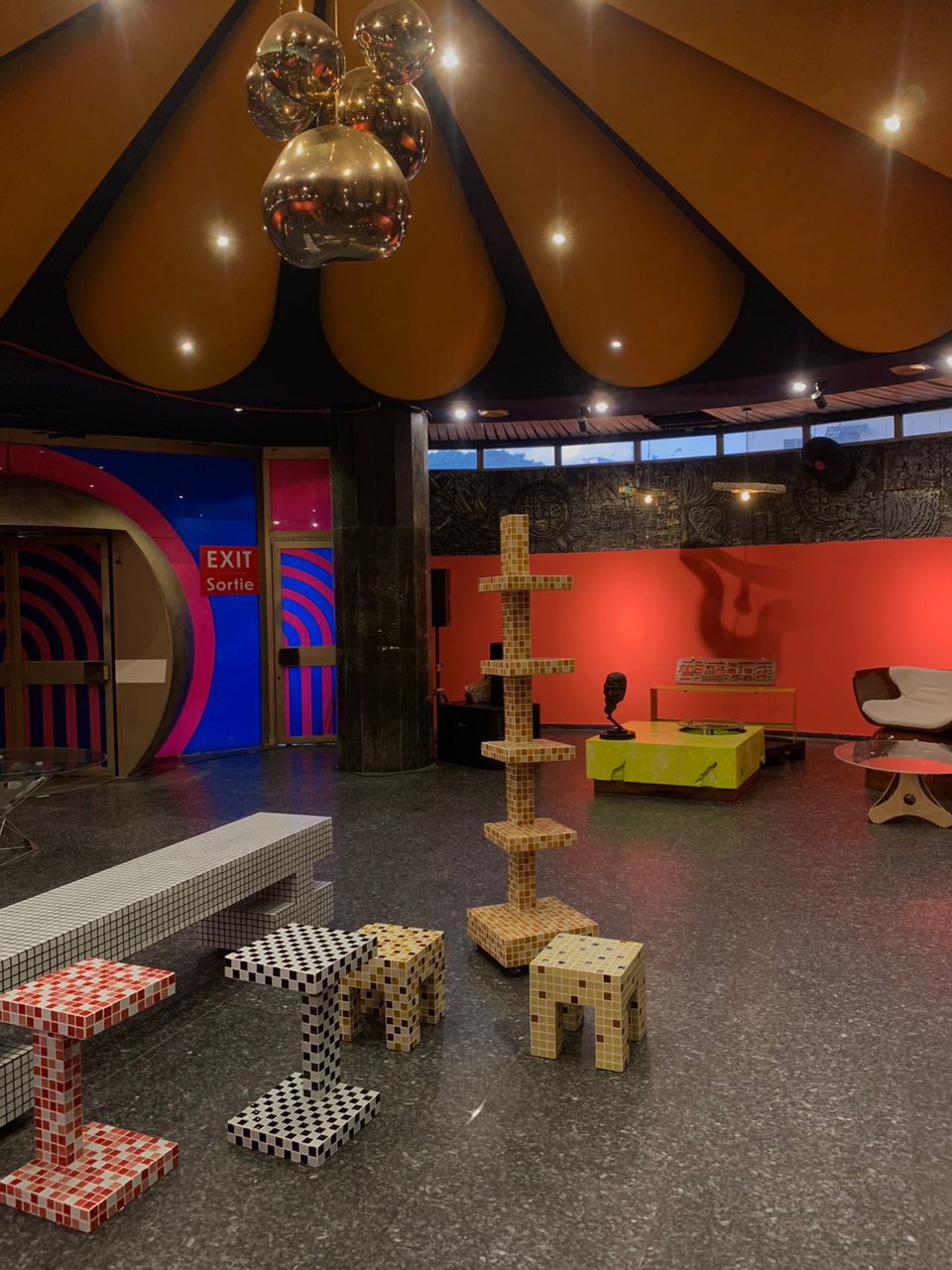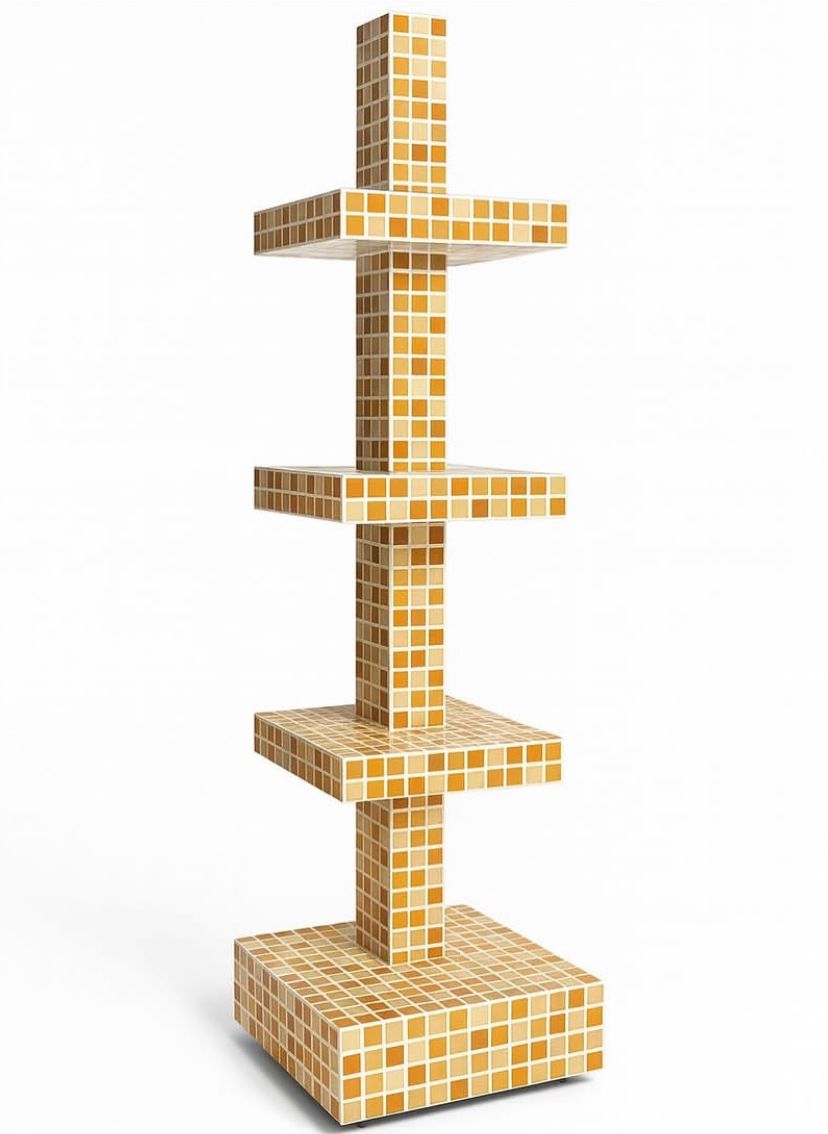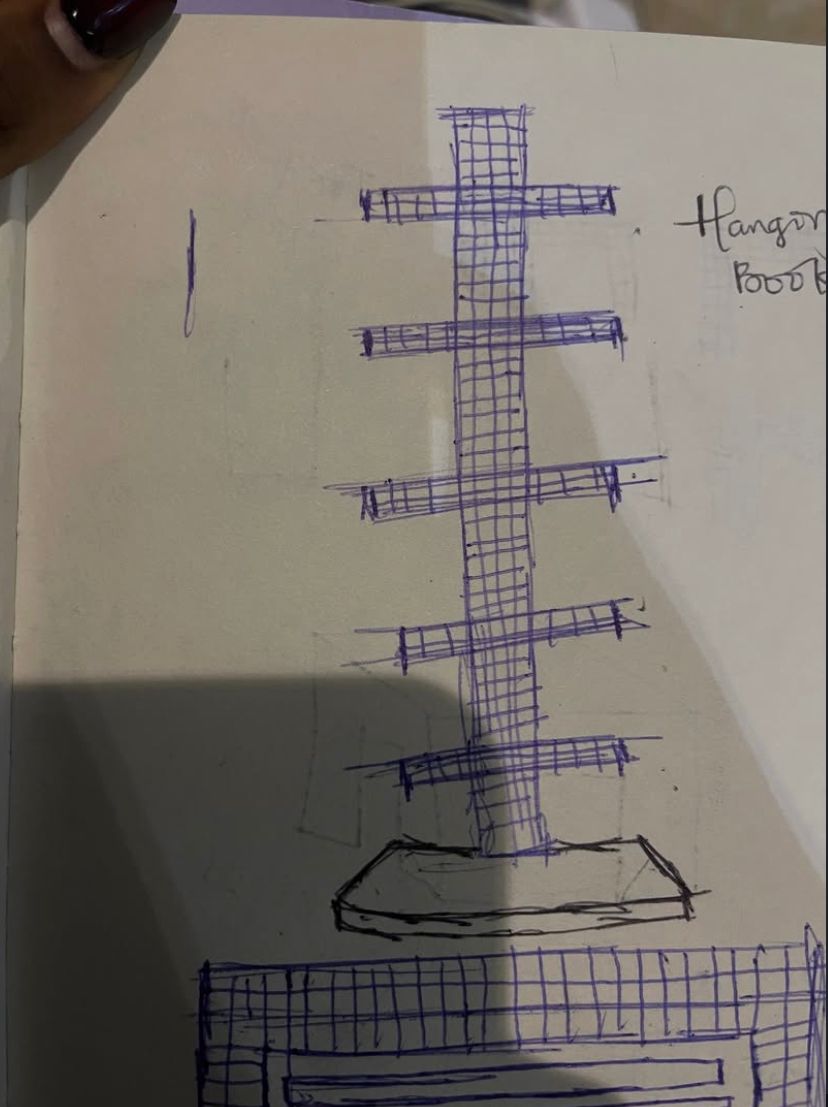
At this year’s Design Week Lagos press launch, one designer’s work stood out for its clarity of intention and craftsmanship: Omolade Ogundimu, founder and creative director of MOSTUDEO. A design production connoisseur working at the intersection of art, furniture, and textile, Ogundimu is building a design language grounded in memory, structure, and the architectural vernacular of West Africa.
Design Week Lagos (DWL) stands as Africa’s leading design forum: a city-wide transformation of Lagos into a dynamic canvas of creativity, where exhibitions, talks, installations and product debuts converge to celebrate craftsmanship, innovation and industry, and Omolade’s latest furniture series , “Domestic Forms,” feels immediately familiar, yet newly considered. The work traces itself back to Yoruba households: the tiled floors, the unmistakable pillars, and the spatial rhythms that form the backbone of communal living. Ogundimu revisits these elements not as retro aesthetics but as active cultural references, fragments of history that continue to shape how “home” is imagined today.

What’s remarkable is her material approach. Mosaic tiling, which is a craft historically seen in mid-century homes across Lagos and Cotono, becomes a contemporary surface of storytelling. In a design incubation program, cost and practicality became central considerations, prompting a shift toward subtractive construction: carving out negative space from solid blocks to retain identity while refining scale. Efficiency becomes a design principle; ornament holds meaning without excess.

Among the standout pieces is “Continuum — The Ẹ̀dá Bookshelf”. Rising vertically in a grid of warm, uniform tiles, the piece imagines the bookshelf as architecture, a structural spine that organizes both objects and memory. Its layered shelves rest on a central column, echoing the persistent presence of the pillar in postcolonial African buildings: functional yet symbolic, a marker of resilience, continuity, and rootedness. In naming it Ẹ̀dá, creation, form, or being, Ogundimu positions the object not as décor but as a quiet guardian of space and history.

Domestic Forms presents a future where African modernity does not detach from its origin. Instead, it begins at home, in the details that shaped us, and evolves through deliberate craft, cultural intelligence, and design that speaks in a language we recognize.
MOSTUDEO’s contribution to this year’s exhibition reaffirms what contemporary African design can be: thoughtful, grounded, and profoundly aware of the stories that materials carry.



